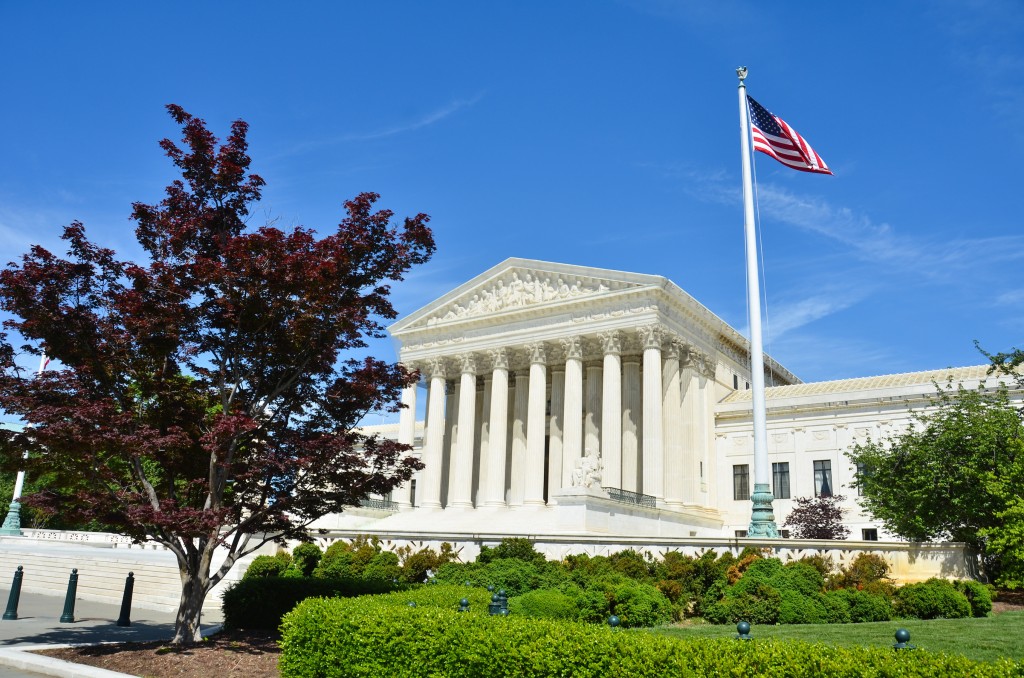
The Supreme Court, SSM, and religious freedom: coming right up!
(by Stanley Carlson-Thies)
On April 28, 2015, the U.S. Supreme Court will hear oral arguments inObergefell v. Hodges and several linked same-sex marriage cases, asking whether it should declare same-sex marriage to be constitutionally required in every state in the nation. A ruling is expected in June, and most observers seem sure the Court will rule to make same-sex marriage the law of the land.
That timing and outcome might seem predictable. But no powers of prediction are needed for this: the creation of a national right to same-sex marriage will generate even more religious-freedom concerns as people and organizations that are religiously committed to opposite-sex marriage are asked to regard same-sex marriages as no different than opposite-sex marriages.
The areas of conflict were predicted and analyzed in great detail in a 2008 Becket Fund book, Same-Sex Marriage and Religious Liberty: Emerging Conflicts, edited by Douglas Laycock, Anthony Picarello, and Robin Fretwell Wilson. Marc Stern’s chapter is especially eye-opening as it predicts clashes in a wide range of instances, including employment law, licensing and accreditation, and housing.
The same book explored the many ways that same-sex marriage and religious freedom can be reconciled, not perfectly but substantially. This is a task for legislators, and as same-sex marriage has been legalized in various states by legislation or by judges, some religious freedom protections have been enacted.
What will the Supreme Court do? Telling states how they must protect religious freedom when marriage is redefined is not their task nor within their jurisdiction. And yet among the constitutional principles that they must uphold as they consider this issue is the guarantee of the free exercise of religion-and also the prohibition on the establishment of obligatory religious views (about marriage, too?) and the protection of free speech and free association.
Because religious freedom cannot be separated from marriage redefinition, one of the most important of the 150 or so amicus briefs filed with the Supreme Court in Obergefell is the brief submitted by Douglas Laycock, Thomas Berg, David Blankenhorn, Marie Failinger, and Edward Gaffney.
They urge the Supreme Court to rule in favor of same-sex marriage-and also to speak strongly for the protection of religious freedom. “When the Court invalidates laws prohibiting same-sex civil marriage,” they say, “it must take responsibility for the resulting religious liberty issues.” They point to the current and predictable friction and remind the Court of the principles available to it with which to protect religious freedom in the context of same-sex marriage.
If you read just one amicus brief as the Court wrestles with this momentous issue of redefining marriage for the whole nation, consider making it this brief about religious freedom and same-sex marriage.
